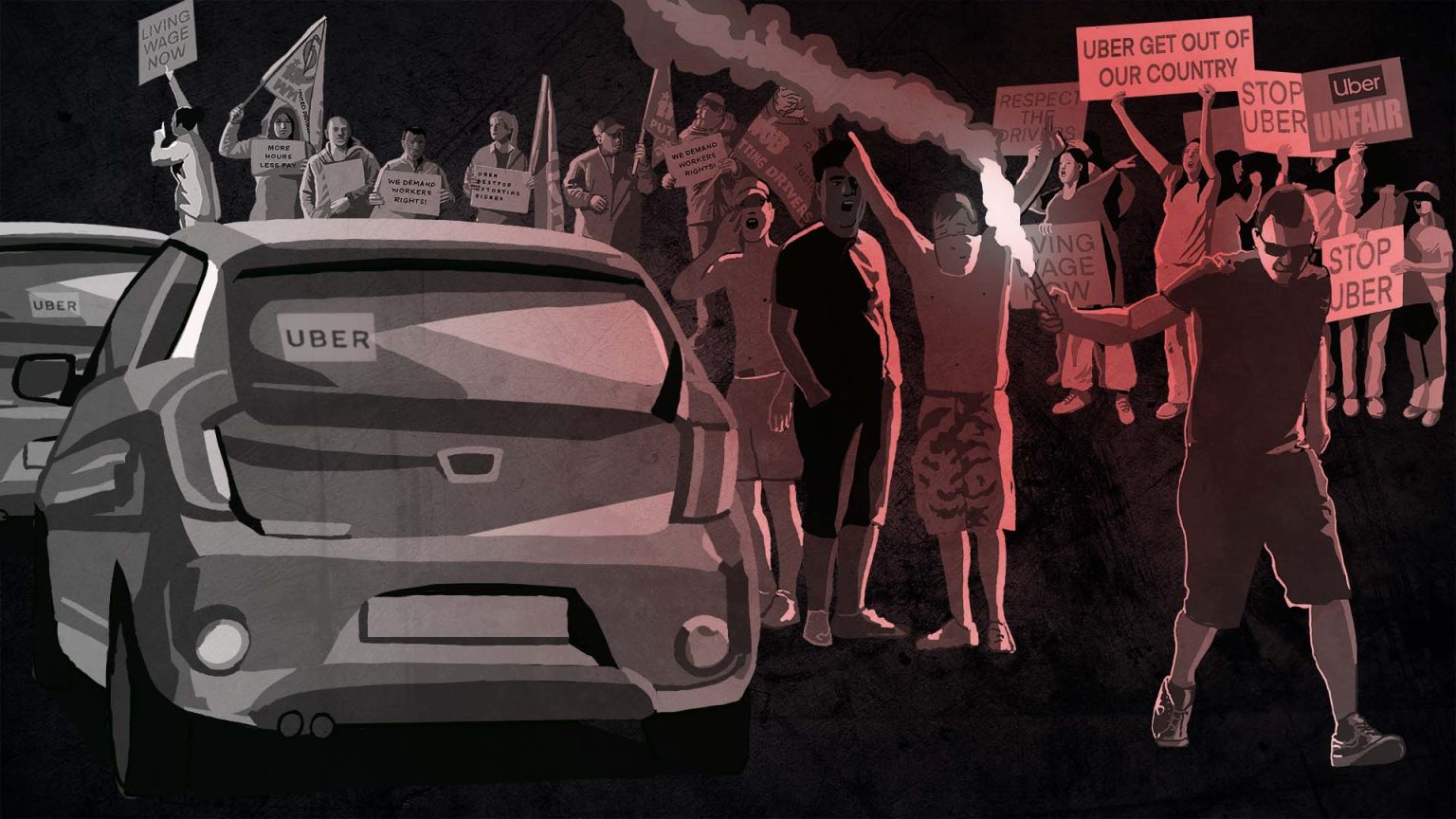You think shit is bad. You have no idea: Capitalism, the gig economy and its victims
Meet the Customer Service Reps for Disney and Airbnb Who Have to Pay to Talk to You
Arise Virtual Solutions, part of the secretive world of work-at-home customer service, helps large corporations shed costs at the expense of workers. Now the pandemic is creating a boom in the industry.
[The public persona:]
Airbnb, battered by the pandemic recession, announced in May that it would be laying off a quarter of its workforce. In a post hailed for its empathy and transparency, CEO Brian Chesky wrote, “We will have to part with teammates that we love and value.” He outlined a generous severance package. Departing employees would receive 14 weeks of pay plus an extra week for each year at the company; help from professional recruiters to land new jobs; and 12 months of continued health insurance.
[The hidden reality:]
Around the time Chesky made this announcement, another group of people working with Airbnb also lost their jobs. But these weren’t called layoffs and weren’t accompanied by a compassionate note from the CEO. And the workers, who handle the day-to-day tasks of bookings, cancellations and keeping the peace between guests and hosts, got no severance. There was no health insurance plan to be extended.
These American workers — cheap, disposable and isolated — worked through a company called Arise Virtual Solutions, a little-known business that has helped some of America’s best-known businesses shed labor costs.
... Arise’s workers not only don’t work for its clients, they also don’t officially work for Arise. Like Uber drivers or TaskRabbit gofers, they are independent contractors. To get gigs, they first absorb substantial expense, paying for their own equipment and training, and then have fees deducted from every paycheck for the “use” of Arise’s “platform.”
Arise has faced, and lost, legal challenges alleging that its arrangements with agents violate federal labor law and cheat workers of what they are rightfully owed. One judge called the arrangement an “elaborate construct” created by Arise to get around labor law. Nevertheless Arise has been able to avoid altering its model in any significant way, aided in part by a 5-4 ruling from the Supreme Court, written by Trump appointee Neil Gorsuch.
[The wealthy rig the game so that they always win.]
... The “biggest benefit” Arise provides is to help companies “squeeze wastage out of a typical workday,” as John Meyer, a former Arise CEO once explained to a trade publication. Meyer, who has remarked that “business is sports for adults,” said that “a typical employee has a utilization rate of 65 percent because you’re paying for their lunch, breaks, and training.” Without that “low utilization” and other overhead, Arise costs up to 30% less than a traditional call center, Meyer said.
... After paying about $1,500 for home office equipment: a computer, two headsets and a phone line dedicated to Arise; after paying Arise to run a check on her background; after passing Arise’s voice-assessment test and signing Arise’s nondisclosure form; after paying for and passing Arise’s introductory training, to which she devoted three days, unpaid; after paying for and passing a certification course to provide customer service for Arise client AT&T, to which she devoted 44 unpaid days; after then being informed she had to get more training yet — an additional 10 days, for which she was told she would be paid, but wasn’t; and then, after finally getting a chance to sign up for hours and do work for which she would be paid (except for her time spent waiting for technical support, or researching customer issues, or huddling with supervisors), Tami Pendergraft spent three weeks fielding telephone calls from AT&T customers, after which she received a single paycheck.
For $96.12.
[Read the whole article to find out how this scam works. It is horrifying.]
#Capitalism #GigEconomy #Exploitation
https://www.propublica.org/article/meet-the-customer-service-reps-for-disney-and-airbnb-who-have-to-pay-to-talk-to-you





